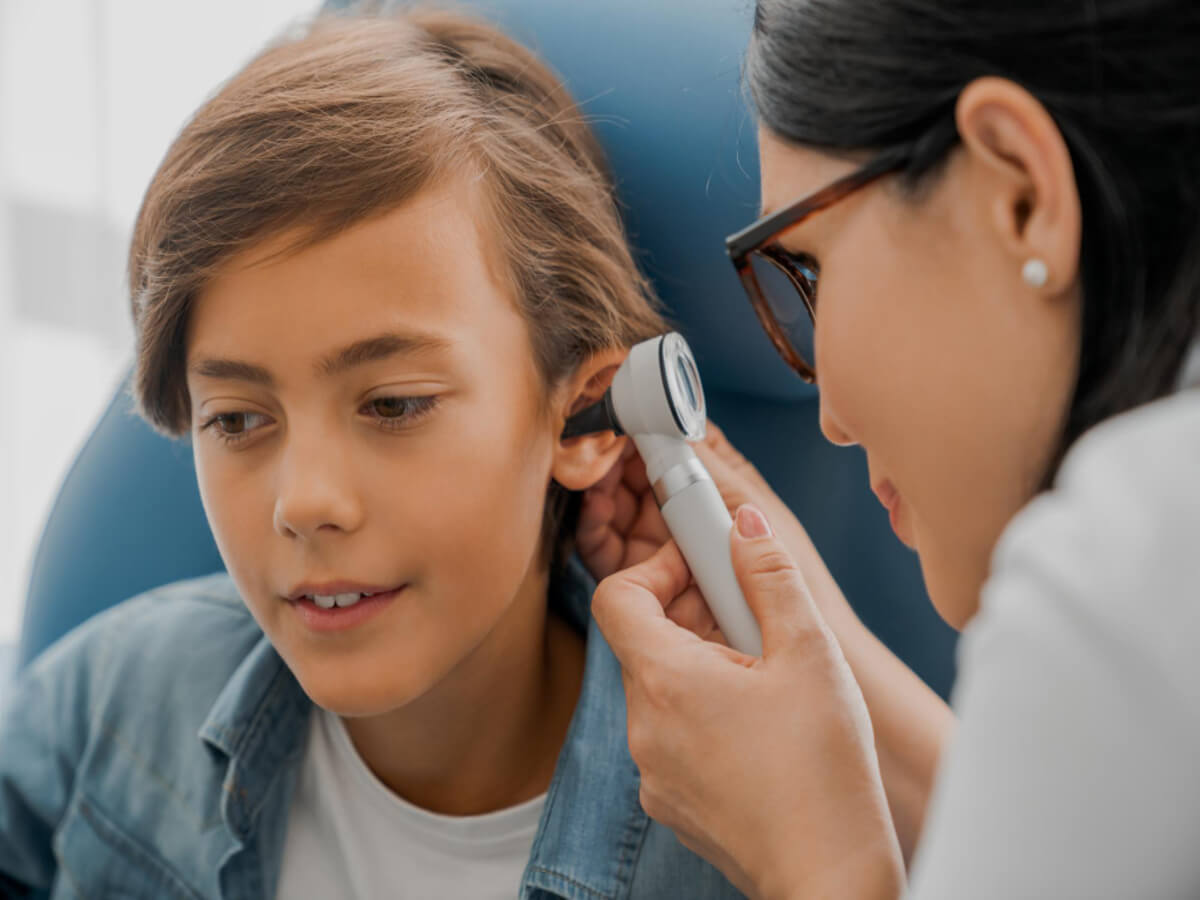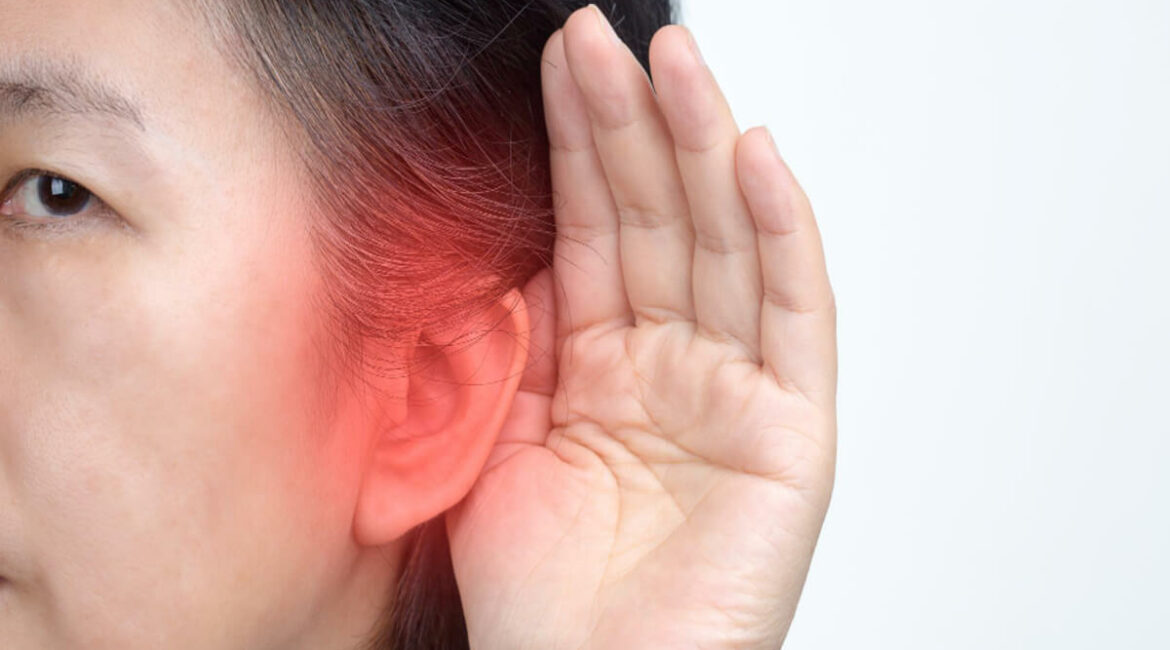Most of those with hearing loss have “binaural” hearing loss, affecting both ears. However, some people might only lose hearing in one ear.
Either at birth or later in life, this can manifest.
Depending on how severe the hearing loss is, this is referred to as unilateral hearing loss or single-sided deafness. The term “single-sided deafness” (SSD) is typically used when the hearing loss is substantial or almost profound.
Loss of hearing can happen gradually or unexpectedly. When it occurs unexpectedly, it must be treated immediately and is a medical emergency. Sudden sensorineural hearing loss is the term for this.
If you notice hearing loss, you should always call your doctor or contact a J Glasses specialist. A sudden hearing loss on one or both ears is a medical emergency requiring immediate medical care. We will be able to discuss your options for therapy and could suggest better solutions.
How Does Unilateral Hearing Loss Impact People’s Lives?
Because the brain uses both ears to improve hearing quality and range, it is a feature of our design that we have two ears.
Unique difficulties arise when one ear loses its hearing. According on how severe your hearing loss is:
- Sometimes it is difficult to tell where a sound originates from: By determining which ear hears a sound first, a process known as sound localization or directional hearing, your brain can determine where a sound originates from. When only one healthy hearing ear can hear well, it may be challenging to pinpoint the source of the sound.
- It could be challenging to hear in noisy settings: Selective hearing, or filtering out unhelpful noises like background noise, is a function of your brain. Without a second ear, this is not easy to accomplish. A person with SSD may find it difficult to concentrate on a single speaker in a noisy environment.
- The brain “hears” a sound louder when it is perceived via both ears as opposed to when the identical sound at the same decibel is only perceived through one ear; therefore, you could find it more challenging to determine how loud something is. This is because the brain processes sound using signals from the nerves in both ears.
- You might have trouble multitasking: Due to earlier factors and increased cognitive demands on the brain, single-sided deafness causes listening fatigue. Your brain takes longer to concentrate on the current job because there is more noise. You can miss much of what is being said if you are simultaneously trying to listen to someone else talk.
What Are the Causes of Hearing Loss in One Ear?
Hearing loss on one side can have a variety of causes, such as:
- injury to the ear
- exposure to loud noises or certain drugs
- blockage of the ear
- tumour
- illness
Age-related hearing alterations can be a normal part of ageing. Wax buildup in the ear canal or ear infections with fluid buildup is two examples of causes that can be treated. Some are permanent, such as those brought on by issues with the ear’s functions.
The following medical problems, in addition to head or ear injuries, or the presence of a foreign body in the ear, can cause a hearing loss on one side:
- acoustic neuroma: a type of tumour that presses on the nerve that affects hearing
- eardrum rupture: a small hole or tear in the eardrum
- labyrinthitis: a disorder that causes the inner ear apparatus to become swollen and irritated
- Meniere’s disease: a disorder that affects the inner ear and eventually leads to deafness
- neurofibromatosis type 2: an inherited disease that causes noncancerous growths to appear on the hearing nerve
- otitis externa (swimmer’s ear): inflammation of the outer ear and ear canal
- otitis media with effusion: an infection with thick or sticky fluid behind the eardrum
- shingles: an infection caused by the same virus that causes chickenpox
- Reye’s syndrome: a rare disorder, most often seen in children
- temporal arteritis: inflammation and damage to the blood vessels in the head and neck
- vertebrobasilar insufficiency: poor blood flow to the back of the brain
Hearing loss in one ear may also be the result of prescription medications like:
- chemotherapy drugs
- diuretics such as furosemide
- salicylate (aspirin) toxicity
- antibiotics such as streptomycin and tobramycin
How to Know if You Have Hearing Loss in One Ear?
Among the warning signs and symptoms of single-sided deafness are:
- Tinnitus (ringing) in only one ear.
- Asking others to repeat themselves.
- Favouring one ear over the other on the phone or in conversations.
- Having trouble localizing sounds.
- Turned the television up louder.
- Noticing it is more difficult to understand conversations, especially in noisy environments.
- Withdrawing from certain social situations.
- Feeling fatigued or irritable at the end of the day from listening.
How Common Is Unilateral Hearing Loss in Singapore?
According to a study by the Academy of Medicine, Singapore, 422,000 senior citizens in Singapore are expected to have hearing loss, and over 100,000 may have a debilitating hearing impairment. By 2030, the numbers are anticipated to double.
The older population in this area has significant hearing loss rates, yet most do not seek assistance.
The 338 participants in the study discovered that the prevalence of debilitating hearing loss increases considerably with ageing, affecting over 9% of persons between the ages of 60 and 69, 22% between the ages of 70 and 79, and over 35.7% of those over the age of 80.
However, the adoption rate for hearing aid has lagged. Only 7.5% of research participants who had an incapacitating hearing loss wore hearing aids.
Incapacitating hearing loss affects daily communication. According to senior principal audiologist Gary Lee, the study’s lead author, someone with this hearing loss may only understand less than half of what is being said without visual cues.
What Are the Treatment Options for Hearing Loss in One Ear?

Depending on the root of your disease, there are various treatment options for hearing loss. Hearing loss can sometimes become permanent. If there is no other cure for your hearing loss, your doctor may suggest a hearing aid Singapore to help you hear better.
By carefully removing the earwax, wax buildup-related hearing loss can be corrected. If these products do not significantly improve your condition within a few days, you should always seek professional care or seek out JGlasses. These products can irritate your ears if used frequently. Avoid attempting to remove a foreign object from your ear on your own if it is impairing your hearing. To avoid damaging your ears, never introduce cotton swabs or other devices, such as tweezers, to remove a foreign body. Our doctor is here to examine you immediately if you experience other symptoms, such as facial weakness, imbalance, or neurological ones like dizziness.
Drop it at JGlasses & Hearing for a free hearing test in Singapore with free trials on CROS hearing aids.

